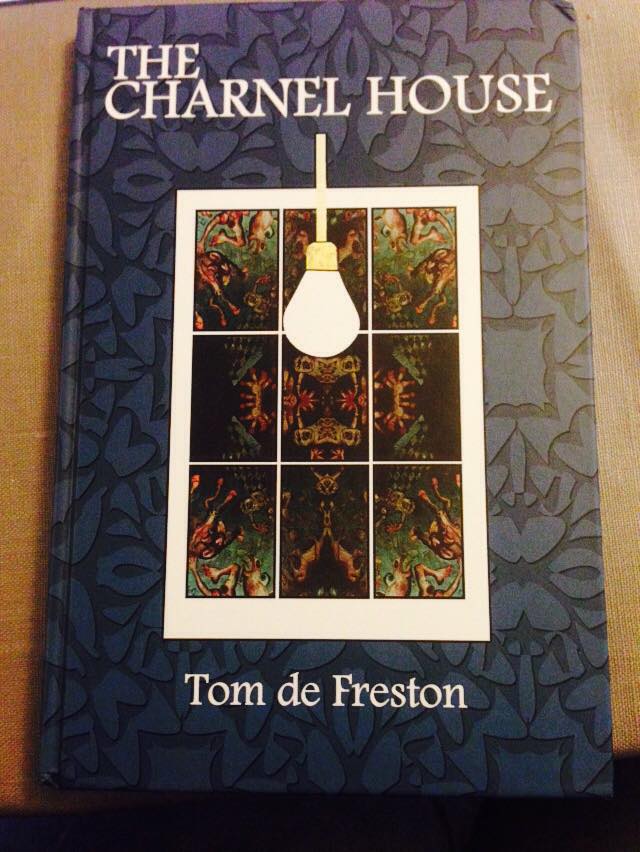Lakeview: International Journal of Literature and Arts #1
-Reviewed by Ian Chung–
Lakeview International Journal of Literature and Arts is a new literary magazine published by the Writers’ Forum at Sacred Heart College, India. At the risk of sounding overly glib, the preceding sentence encapsulates what I found most problematic about this literary project, namely its lack of focus. It almost feels as if there are two versions of Lakeview competing for one’s attention. The first aspires to the ‘International’ portion of the publication’s title, featuring an advisory board drawn from all over the world and publishing work from prominent writers like George Szirtes and Hanif Kureishi. The other comes across more like a college publication, right down to publishing the winning pieces from competitions run by the Sacred Heart Writers’ Forum. This is not to say that either approach to creating a literary magazine is better, but rather that Lakeview might have done better to settle on one or the other, at least for its first issue.
This sense of excess and/or confusion also extends to some of the work in the magazine. An extended sonnet sequence like Sofiul Azam’s ‘Time and Memories’ is admirable in its ambition, and contains interesting turns of phrase like ‘the living iceberg’ and ‘the verb of each and every folly’. Yet it also contains plenty of what feel like filler lines, e.g. ‘With Coldie, I turn cold, hot with Hottie’, which likely would have been edited out in something shorter. Or consider a story like Prathap Kamath’s ‘Jacoba Came to Conquer’. Although the title essentially gives away the story’s twist, the core of the narrative has the potential to make salient points about the nature of post-colonial hang-ups and the complex position of Anglo-Indians in Indian society, and for the first half, actually seems to be heading in that direction. Instead, the main narrative pay-off consists largely of a cringe-worthy seduction scene: ‘A tongue entered his mouth like a snake and probed its fleshy insides in a coiling motion. […] His hands ran over a field of soft mounts and shrubby valleys, and in an oblivious abandon his body danced to a hitherto unknown rhythm.’
However, there is still enjoyable writing on display here, especially in the trio of Sudeep Sen, Hanif Kureishi and George Szirtes, whose work opens the issue. Sen’s ‘Banyan’ is a sequence of delicate images, tracing ‘what is revealed’, ‘As winter secrets / melt’. Kureishi’s ‘Weddings and Beheadings’ is a surreal tale of filmmakers who are forced to film beheadings, which are then ‘broadcast everywhere, on most of the news channels worldwide’. In its stately rhythms and triple rhyme, George Szirtes’s ‘The Voices’ demonstrates the argument from his Poetry Foundation essay that ‘[r]hyme can be unexpected salvation, the paper nurse that somehow, against all the odds, helps us stick the world together while all the time drawing attention to its own fabricated nature’. Lakeview also has paintings and photography interspersed throughout the issue, with the paintings by Bijay Biswaal and Abdul Saleem being particularly noteworthy.
Thus on the whole, the debut issue of Lakeview is a mixed bag, but also demonstrates potential to grow as a literary endeavour. While the magazine’s eclectic selection of material offers something for almost any reader (besides poetry, short fiction, paintings and photography, there is also an essay on gendai haiku by Alan Summers and an interview by Chief Editor Jose Varghese with Jewish American author, Michelle Cohen Corasanti), this means it is also frequently unclear whom its target audience is. That said, growing pains are almost a given for any new publication. Hopefully, as more readers, and therefore potential contributors, become aware of Lakeview, it will have an easier time fully living up to the ‘International’ portion of its name, as well as figuring out precisely what sort of magazine it wants to be.




Pingback: Episode 148: Cloud Storage «
Pingback: Saboteur Awards 2013: The Shortlist | Sabotage
Pingback: Saboteur Awards 2013: Fiction | Sabotage